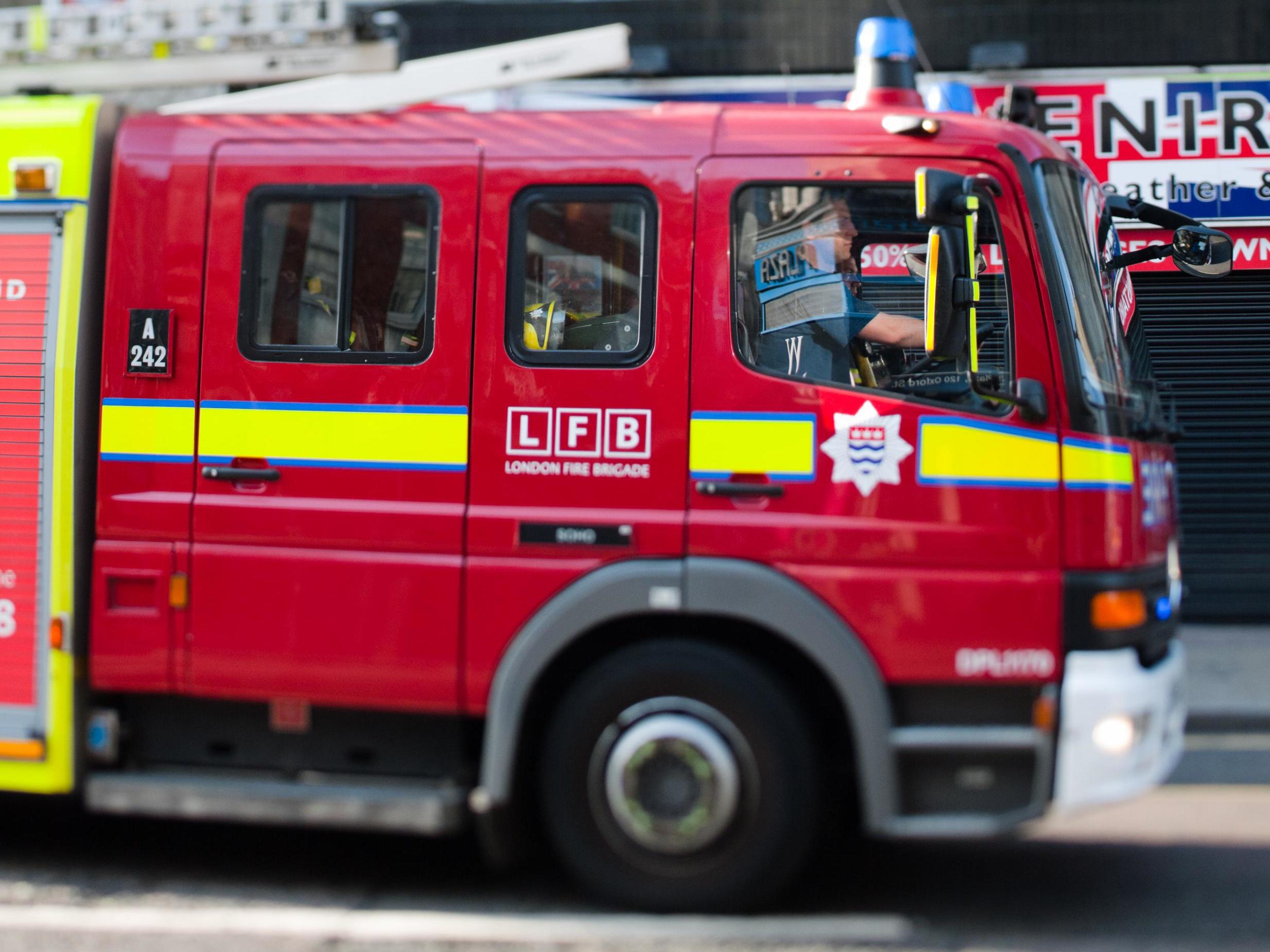Firefighters’ union ‘goes against public interest’ with influence on services in England, watchdog says
Fire Brigades Union insists it ‘fights for the safety of the public, firefighters and control staff’

The union representing British firefighters has “gone too far” in exerting its influence and has acted against the public interest, a watchdog has said.
Sir Tom Winsor, HM chief inspector of fire and rescue services, took aim at the Fire Brigades Union (FBU) in his annual report for 2019.
“The influence of the FBU is considerable in some services,” he said. “I believe it goes too far and is sometimes contrary to the public interest. This is not acceptable – the FBU should not unduly dictate how fire services are provided to the public.”
Sir Tom said the FBU had demanded extra pay for first aid-trained firefighters to provide medical assistance to NHS ambulance crews, despite the move being “in the interests of their community that they should”.
He raised concerns about the refusal of crews in Greater Manchester to take part in a team trained to respond to marauding terrorist firearms attacks because of a pay dispute, meaning firefighters had to be pulled from Merseyside.
“We are concerned about the implications of this arrangement for public safety,” the report said. “A delay in any emergency service responding to such an incident could very well cost lives.”
The FBU denied any undue influence on the fire service and said it performed its function as elected representatives of rank-and-file firefighters.
“We have fought for the safety of the public, firefighters and control staff and we will continue to do so,” said FBU general secretary Matt Wrack.
“Operational fire service matters are intrinsically linked to the health and safety of firefighters and are therefore at the core of our work as a union.
“Our union has a proud 100-year history of improving safety for both firefighters and the public, as well as leading monumental changes to fire safety regulations.”
The report, which was the first annual assessment of fire services by HM Inspectorate of Constabulary and Fire and Rescue Services (HMICFRS), also raised concern that union influence was preventing reforms.
“Many services are being prevented from implementing more efficient shift patterns and crewing models, or widening the responsibilities of firefighters to include prevention and protection work,” it concluded.
“With far fewer fires to attend to and a squeeze on public finances, unions need to work with services to consider the greater contribution firefighters can make in protecting their local communities.”
The watchdog found a fundamental lack of consensus on what roles firefighters should fulfil, and that some units were spending too long inside their stations rather than carrying out safety work.
The report called for fire brigades to improve the focus on building safety, saying that more than 300 buildings still have the same cladding as Grenfell Tower and companies must be made to comply with fire safety legislation.
The number of specially trained fire safety staff has dropped significantly since 2011, the report said, and many are moving into better-paid jobs in the private sector.
The watchdog said that successive governments had pushed localism since 2014, causing regional fire services to operate independently and “at the expense of national standards”.
“While it is reasonable to allow services to best respond to local risk, there is, in some cases, unjustifiable variation in the level of service the public receive,” Sir Tom added.
His report said working practices were out of date, with many services still relying on paper-based systems, and found a “regrettable lack of diversity”.
“Most worryingly, we saw some examples of toxic culture that have gone unchecked and should not be part of any 21st-century public service,” it added.
Inspectors said they had found examples of bullying, harassment and discrimination and called for the introduction of a code of ethics.
The report concluded that overall, English fire brigades were among the best in the world, but that improvements were needed to improve the services to the public.
“Without reform, the sector will continue to be beset by barriers that prevent progress, perpetuating outdated ways of working and ineffective and inefficient practices,” Sir Tom said.
“Leaders in central government, local government, fire and rescue authorities of all shapes and sizes, trade unions and the operational leads of fire services need to make bold, long-term decisions.”
The FBU said it supported the re-establishment of national standards and warned of a “postcode lottery of public safety” because of fragmented local services.
It called for the government to invest in hiring more firefighters and safety officers, adding: “It is disgraceful that firefighters continue to have more work piled on them without any reciprocal increase in pay.
“Our real wages have fallen by more than £4,000 over the last decade. Fair pay for more work is not too much to ask.”
The Home Office claimed fire and rescue services had the resources they needed and that local government funding would increase in line with inflation.
It also said the Fire Standards Board would create set of professional standards for the sector.
Kit Malthouse, minister for the fire service, said: “I am encouraged to see areas of strong performance, particularly in emergency response, but this report sends a clear message that significant reform is required.
“The sector must now come together and work with government to make the service more efficient and effective and drive forward much needed cultural change.”
Subscribe to Independent Premium to bookmark this article
Want to bookmark your favourite articles and stories to read or reference later? Start your Independent Premium subscription today.

Join our commenting forum
Join thought-provoking conversations, follow other Independent readers and see their replies